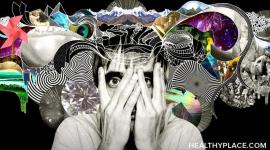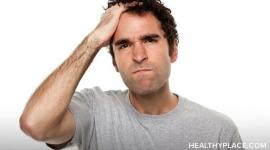What Is Bipolar Hypomania? Symptoms, Triggers, Treatment

Bipolar hypomania has a reputation for being less severe than full-blown mania, but that doesn’t mean it’s easy to manage. The symptoms are similar to those of mania – such as elevated mood, racing thoughts, and increased activity – but hypomania does not usually impact someone’s life in an obvious way. Although the symptoms of hypomania are subtle, they can still impair a person’s judgment and cycle into depression. It’s important to spot the signs of bipolar hypomania so you can receive support and treatment.
Bipolar Hypomania: What Are the Symptoms?
In bipolar hypomania, the "hypo" prefix stems from the Greek meaning of "under," often meaning "less than." In this instance, the term "hypomania" is used because this mood state is less than mania but more than "normal" levels of mood and functioning. The main difference between hypomania and mania is that hypomania doesn't have a noticeable impact on your relationships, work, or day-to-day functioning. What's more, people with hypomania tend not to experience the psychosis that comes with mania.
Bipolar hypomania can be difficult to diagnose because it can masquerade as simple happiness or high energy. It’s important to identify hypomania, as it is a hallmark sign of bipolar type II disorder – an illness defined by periods of hypomania and depression. The symptoms of hypomania are similar to those of mania. In fact, the Diagnostic and Statistical Manual of Mental Disorders (DSM-5) criteria for hypomania and mania are almost identical.
Symptoms include:
- Decreased need for sleep
- Unusually high levels of energy
- Increased creativity, lots of ideas and racing thoughts
- Inflated self-esteem or grandiosity
- Increased talkativeness
- Marked distractibility
- Impulsive behavior, such as excessive spending, hypersexuality
The presence of hypomania, as opposed to mania, is what differentiates two types of bipolar disorder (type I and type II) from one another. To be diagnosed with bipolar II disorder, you need to have experienced at least three symptoms of hypomania for four or more days at a time.
How Is Bipolar Hypomania Triggered?
Like mania, bipolar hypomania can be triggered by external factors. Although these triggers do not cause bipolar disorder, they can worsen the underlying illness and bring about a hypomanic episode. Some of the most common triggers for bipolar II hypomania include:
- Changes in sleep patterns, especially lack of sleep
- The loss of a job or relationship
- Conflict with loved ones
- Alcohol and drug abuse
- Some antidepressants
- Shifting hormones, such as those that occur in pregnancy and menopause
- Financial strain
- The loss of a loved one
Some of these triggers are more avoidable than others. Many people with bipolar find sticking to a daily routine, getting enough sleep and avoiding stimulants like alcohol and caffeine help to prevent episodes of hypomania. However, other life stressors, such as job loss or relationship trouble, are mostly unpreventable. For this reason, it's important to have a treatment plan in place so you can manage the symptoms of bipolar hypomania during particularly stressful or triggering times.
Bipolar with Hypomania: Treatment Options
Bipolar with hypomania often goes undiagnosed and untreated. There are several reasons why this happens:
- The experience of hypomania can be pleasant for some people, resulting in a heightened state of creativity and a decreased need for sleep. People in hypomania are also extremely confident, so they don't doubt their decision-making capabilities and are unaware of the consequences of their actions. In other words, they don’t necessarily think that anything is “wrong” and therefore don’t seek treatment.
- Bipolar II is often misdiagnosed as major depressive disorder, as depression in bipolar II disorder is far more prevalent than hypomania.
If you are diagnosed with bipolar hypomania, your doctor may decide to treat you with mood stabilizers. Medications like lithium and anticonvulsants are used successfully in people with bipolar II disorder. For less severe hypomania, you may be able to deal with your condition using a combination of psychological therapy and lifestyle changes – such as avoiding common triggers. This should only be determined through close consultation with your medical provider once a diagnosis has been given.
APA Reference
Smith, E.
(2021, December 28). What Is Bipolar Hypomania? Symptoms, Triggers, Treatment, HealthyPlace. Retrieved
on 2026, January 26 from https://www.healthyplace.com/bipolar-disorder/bipolar-symptoms/what-is-bipolar-hypomania-symptoms-triggers-treatment


